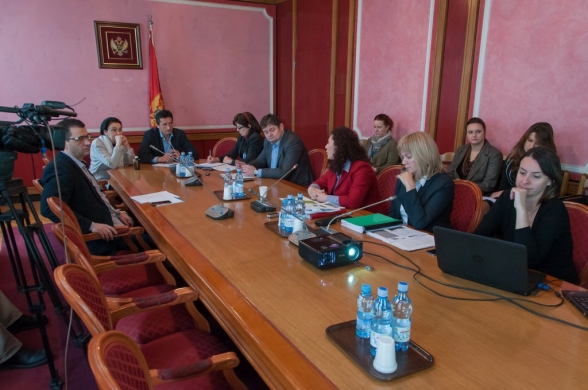The Committee on Tourism, Agriculture, Ecology and Spatial Planning today held a meeting, where they presented the Draft of the National Sustainable Development Strategy 2030 (NSOR). Leading expert Ms Gordana Đurović and process coordinator and a member of the expert team for drafting this document Ms Jelena Knežević pointed out that the basic principle of NSOR 2030 - production of goods and provision of services for promotion of material, mental and spiritual welfare of all generations - required four basic, necessary resources: human, social, natural, and economic. Those are the key national resources that need to be sustainable, preserving “the right to development” for each generation to come. The right to development is regarded in relation to the right of the individual, family and family values, and the widest social groups within governance at the state level and the level of local communities.
It was stated that, in accordance with the methodology for drafting the NSOR and significance of the Sustainable Development Agenda 2030, the content and structure of NSOR was determined: State of national resources (which covers four units: state of human resources, state of social resources, state of natural resources, state of economic resources, governance for sustainable development). The overview of key unsustainable trends of development and the need for sustainable development by 2030 was also given. Strategic goals and measures were defined for improvement of state of human resources and strengthening of social cohesion, improvement of demographic movement and reduction of demographic deficit, preservation of natural capital and introduction of green economy. The Strategy also deals with sustainable development funding, Action Plan for NSOR 2030, which represents a set of measures and their sub-measures grouped within strategic goals of sustainable development. The NSOR 2030 confirms that the foundation is set for monitoring the implementation of the Sustainable Development Agenda 2030 in the national context.
The Committee members were interested in environmental impact assessment of building another unit of the Thermal Power Plant in Pljevlja and hydrocarbon exploration in the Montenegrin coast. It was assessed that, considering that there are no national institutions dealing with economic analysis, a strategy with this level of high quality was not easy to make. The expectation that the Strategy would be implemented as planned was expressed.









